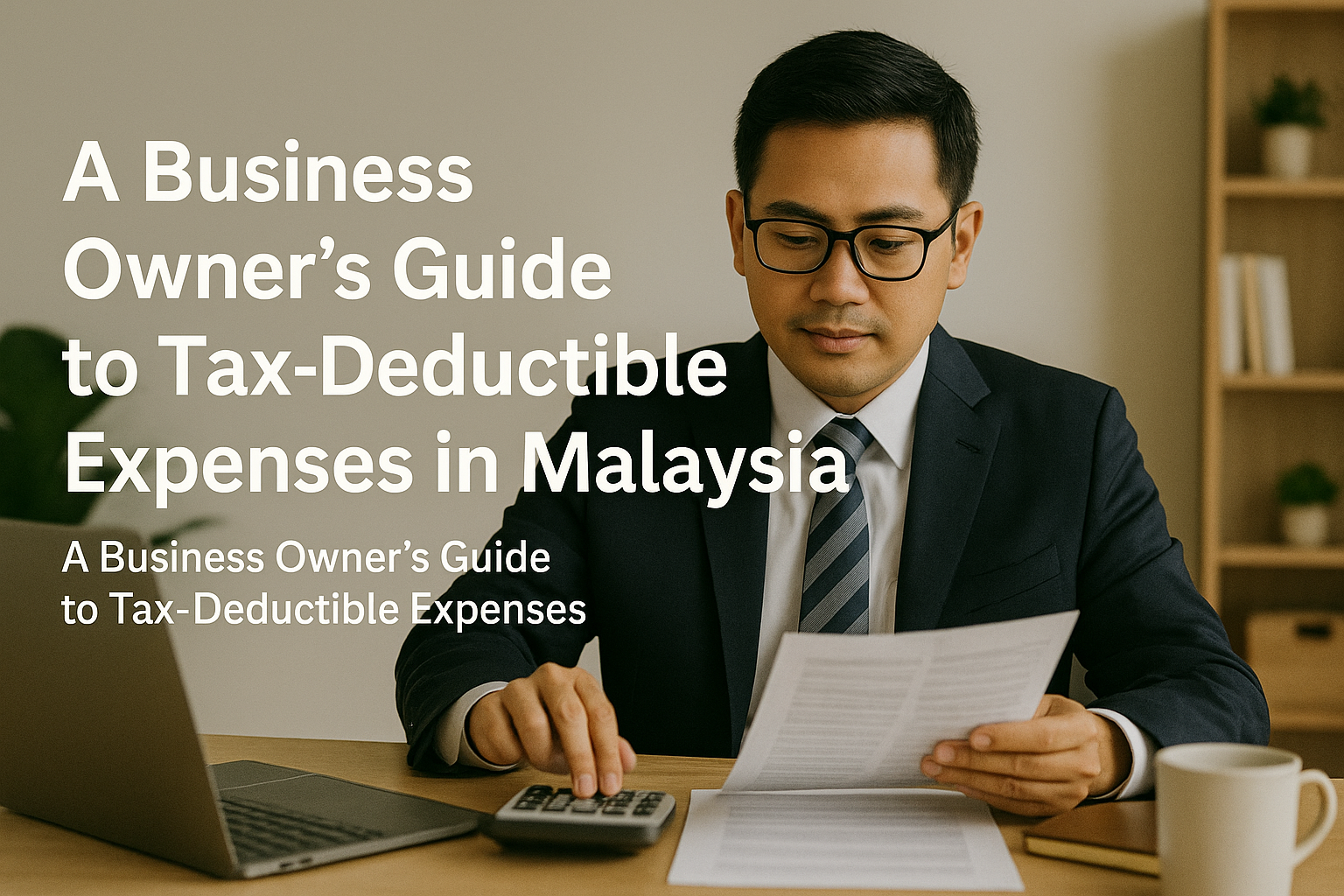For every business owner in Malaysia, one of the most critical aspects of managing company finances is understanding what you can—and cannot—claim as a tax-deductible expense. Correctly identifying allowable expenses can significantly reduce your company’s taxable income, leading to lower tax payments.
However, the rules can be confusing. To provide clarity, this guide, based on official principles from the Inland Revenue Board of Malaysia (LHDN), will break down the fundamentals of what makes an expense deductible.
The Golden Rule: The “Wholly and Exclusively” Principle
The foundation of tax deductibility in Malaysia comes from Section 33(1) of the Income Tax Act 1967. This section sets out the “golden rule”: for an expense to be deductible, it must have been
“wholly and exclusively incurred in the production of gross income.”
To meet this test, an expense must satisfy three key conditions:
- It must be incurred
wholly and exclusively for the purpose of generating the company’s income.
- It must be an expense that is
directly used to generate that income.
- It must be a
reasonable and normal expense within the context of the business’s operations.
What You CAN Claim: Examples of Allowable Expenses
These are expenses that are clearly incurred for the purpose of running your business and generating income.
-
Employee Wages and Salaries (
Upah dan gaji pekerja) -
Business Premise Rent (
Sewa premis perniagaan) -
Office Utilities (e.g., electricity, water, and internet)
-
Office Maintenance Costs (
Kos penyelenggaraan pejabat) -
Audit Fees and Professional Fees (e.g., accounting, secretarial, legal fees)
- Marketing and Advertising Costs
- Staff Training and Development
What You CANNOT Claim: Common Non-Allowable Expenses
It is equally important to know which expenses are specifically disallowed by LHDN. Claiming these can lead to penalties during a tax audit.
-
Capital Expenditure (
Perbelanjaan bersifat modal)- Why? The cost of purchasing assets (like machinery, office equipment, or vehicles) is not a direct expense. Instead, you can claim Capital Allowances on these assets over several years.
-
Depreciation (
Susut nilai)- Why? Depreciation is an accounting concept. For tax purposes, as mentioned above, you claim Capital Allowances instead.
-
Salary for Sole Proprietors or Partners (
Gaji pemilik tunggal / rakan kongsi)- Why? From a tax perspective, the owner and the sole proprietorship are the same entity. A salary paid to oneself is considered a withdrawal of profit, not a business expense.
-
Personal and Family Expenses (
Perbelanjaan keluarga/peribadi)- Any expense that is for personal use (e.g., personal travel, family meals) cannot be claimed as a business expense.
-
Fines and Penalties (
Denda & penalti)- Any fines for breaking the law (e.g., traffic summons, penalties from SSM or LHDN) are not deductible.
-
Donations to Unapproved Institutions (
Derma tanpa kelulusan LHDN)- Only donations made to government-approved institutions are eligible for tax deduction.
The Key to Maximizing Your Deductions
The key to maximizing your legitimate tax deductions is not just knowing the rules, but maintaining meticulous and well-categorized bookkeeping throughout the year. When every expense is recorded correctly from day one, you ensure that you can claim every deduction you are legally entitled to at year-end.
At SMONE, our Accounting & Bookkeeping service is designed to do just that. We help you establish clear classifications for all your expenses, distinguishing between deductible business costs and non-deductible items. This ensures your financial records are always accurate and audit-ready, providing you with the foundation for optimal tax planning.
Contact us today for a professional consultation.
(Disclaimer)
This article is for general informational purposes and is based on materials published by LHDN. It does not constitute legal or tax advice. Please consult with a qualified tax professional for advice tailored to your specific situation.


